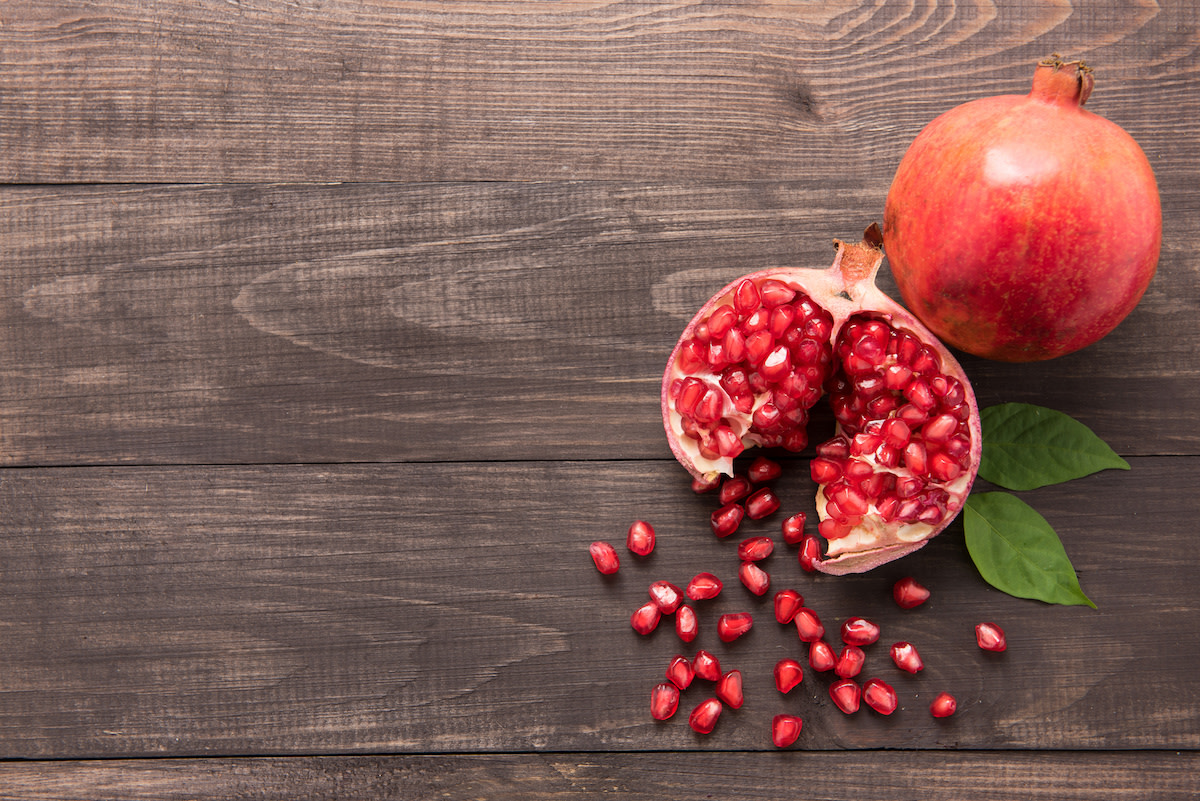How to Store Pomegranates: Pomegranate Storage Guide
Written by MasterClass
Last updated: Dec 20, 2021 • 3 min read
Pomegranates are Mediterranean fruits prized for their jewel-like seeds. Learn how to store pomegranates to extend their shelf life.
Learn From the Best
How to Select Pomegranates
Fresh pomegranates are in season from the end of September through November; however, you can often find them out of season at your local grocery store or farmers’ market. When selecting a pomegranate, look for three main characteristics:
- 1. Shape: As a pomegranate ripens, the shape of the fruit changes. An unripe pomegranate will have a round shape; however, as the inner seeds expand and fill with juice, the sides of the pomegranate will push against the outer skin, creating flat surfaces. Thus, a ripe pomegranate will have a rounded-square shape. Also, check the outer skin for any brown spots or bruises. The skin should be smooth and firm; multiple soft spots signify an overripe pomegranate.
- 2. Weight: Select pomegranates that feel heavy, as this signals the fruit is full of fresh seeds and juice. The heavier the pomegranate, the more liquid it contains, so avoid choosing light pomegranates, which may have dried out.
- 3. Color: Pomegranates come in different colors: Ariana pomegranates are deep red, while Golden Globe pomegranates are yellowish. Regardless of the variety, the color should be bright. Faded and dull skin coloring may be a sign the fruit is overripe. While the shape and weight of the pomegranate are more important than the color, you can still use the color of the fruit as a final indication of its ripeness.
How Long Do Pomegranates Last?
Pomegranates last one to two weeks when stored at room temperature on a countertop away from direct sunlight. If you keep whole pomegranates in the refrigerator, the shelf life extends to two months. However, once you remove the pomegranate seeds from the fruit, they last about five to seven days with cold storage in the refrigerator. For long-term storage, freeze your pomegranate seeds for up to one year.
How to Store Whole Pomegranates
You can store whole pomegranates to preserve the tangy-sweet taste of this autumn fruit. If you plan on eating your whole pomegranate fruit within the next few days, simply store them in a cool, dry place. If the storage conditions are too warm and sunny, your pomegranates may go bad sooner. For longer storage, place the whole fruit in the refrigerator.
How to Store Pomegranate Seeds
While storing pomegranate seeds requires more prep work than storing whole pomegranate fruits, it makes serving and enjoying your pomegranates easy. Here’s how to store pomegranate seeds.
- 1. Cut: The rind of the pomegranate is the hard knob that sticks out at the top of the fruit. Using a sharp knife and starting at the rind, cut through the top of the pomegranate to cut the fruit into quarters.
- 2. Soak: Removing the pomegranate arils (seeds) from the internal membrane of the fruit can be challenging and messy. To avoid spraying pomegranate juice on yourself and your countertops, fill a medium bowl with water and place the pomegranate quarters in the bowl. Use your hands to gently separate the seeds. Soaking the pomegranates in the water will help separate the seeds from the membrane, as the seeds sink to the bottom and the membrane floats to the top.
- 3. Dry: Using colander or strainer, drain the excess water and discard the pomegranate membrane. Lay the pomegranate seeds on a paper towel or clean kitchen towel and gently pat them dry.
- 4. Seal: Store the seeds in a plastic bag or reusable airtight. After filling the freezer bag or container, seal it tightly, as excess air can cause early spoilage.
- 5. Refrigerate: Store your pomegranate seeds in the refrigerator for up to five days.
Want to Learn More About Cooking?
Become a better chef with the MasterClass Annual Membership. Gain access to exclusive video lessons taught by the world’s best, including Niki Nakayama, Gabriela Cámara, Chef Thomas Keller, Yotam Ottolenghi, Dominique Ansel, Gordon Ramsay, Alice Waters, and more.
